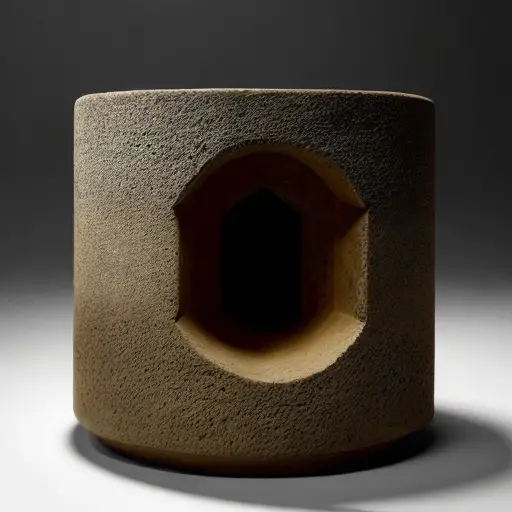Unearthing the Past: The Role of Archaeology in Uncovering Historical Narratives
Archaeology plays a crucial role in studying history by unearthing the past and providing valuable insights into ancient civilizations and cultures. Through the excavation of artifacts, structures, and human remains, archaeologists are able to piece together historical narratives that may have been lost or forgotten over time. By analyzing these findings, researchers can gain a deeper understanding of how past societies lived, interacted, and evolved, shedding light on important events, customs, and traditions that have shaped the world we live in today. Ultimately, the significance of archaeology in studying history lies in its ability to bridge the gap between the past and the present, allowing us to connect with our ancestors and learn from their experiences.
Beyond Written Records: How Archaeology Complements and Enhances Historical Research
An interesting fact about the significance of archaeology in studying history is that it allows us to uncover and understand the lives of ordinary people throughout history, not just the elites or famous figures. While written records often focus on the actions and achievements of the ruling classes, archaeology provides a more comprehensive picture of past societies by examining the material remains left behind by all members of a community. By analyzing artifacts, structures, and even garbage dumps, archaeologists can gain insights into the daily lives, beliefs, and practices of ordinary people, shedding light on aspects of history that may have been overlooked or underrepresented in written records. This inclusive approach to studying history through archaeology helps to create a more balanced and nuanced understanding of past civilizations.
Archaeology serves as a vital complement to traditional historical research by providing tangible evidence that goes beyond written records. While historical documents offer valuable insights into past events and societies, they often present a biased or incomplete perspective. Through the excavation and analysis of physical remains, archaeologists can uncover new information and perspectives that may have been overlooked or misrepresented in written accounts. By combining archaeological findings with historical research, scholars can paint a more comprehensive and accurate picture of the past, enriching our understanding of human history and culture. The significance of archaeology in studying history lies in its ability to fill in the gaps left by written records, offering a more holistic view of the complexities and nuances of the past.
Piecing Together the Puzzle: The Significance of Archaeological Discoveries in Shaping Historical Understanding

Archaeological discoveries play a crucial role in shaping our understanding of history by providing tangible evidence that allows us to piece together the puzzle of the past. Through the excavation and analysis of artifacts, structures, and other physical remains, archaeologists can uncover valuable insights into ancient civilizations and cultures that may have been lost or forgotten over time. By examining these findings in context and interpreting their significance, researchers can reconstruct historical narratives and shed light on important events, customs, and practices that have shaped human societies throughout the ages. In this way, archaeology serves as a key tool in expanding and enriching our knowledge of the past, offering a more nuanced and comprehensive understanding of the complexities of history.
One of the key significance of archaeology in studying history is its ability to provide a more holistic view of the past by complementing and enhancing traditional historical research. While written records offer valuable insights into past events and societies, they often present a biased or incomplete perspective. By combining archaeological findings with historical research, scholars can fill in the gaps left by written accounts, offering a more complete and accurate picture of the past. This interdisciplinary approach allows researchers to corroborate, challenge, or expand upon existing historical narratives, leading to a deeper understanding of the complexities and nuances of human history.
Furthermore, archaeology plays a crucial role in challenging and revising our understanding of history by uncovering new evidence and perspectives that may have been overlooked or misrepresented in written records. Through the discovery of previously unknown sites, artifacts, or cultural practices, archaeologists can challenge existing assumptions and interpretations, prompting scholars to reevaluate and revise their understanding of the past. This process of discovery and reinterpretation not only enriches our knowledge of history but also encourages a more critical and nuanced approach to studying the past, highlighting the dynamic and evolving nature of historical research.
In addition to expanding our understanding of the past, archaeological discoveries also have the potential to foster a deeper connection with our shared human heritage. By uncovering and preserving the material remains of past societies, archaeologists help to preserve and protect cultural heritage for future generations, ensuring that the lessons and legacies of the past are not lost to time. Through public outreach and education initiatives, archaeologists can engage with communities and inspire interest in history, fostering a sense of connection and continuity with the past. In this way, archaeology not only shapes our understanding of history but also helps to preserve and celebrate the rich diversity of human cultures and traditions that have shaped our world.
Unveiling Lost Worlds: Exploring the Cultural
Fun fact: Did you know that archaeology is like a time machine that allows us to uncover hidden stories from the past? By studying artifacts, structures, and even ancient garbage dumps, archaeologists can piece together the puzzle of history, providing us with a more complete understanding of our ancestors' lives. So next time you stumble upon an old coin or a broken piece of pottery, remember that it might hold the key to unlocking fascinating secrets from the past!
Archaeology plays a significant role in studying history by unveiling lost worlds and exploring the cultural landscapes of ancient civilizations. Through the excavation and analysis of archaeological sites, artifacts, and structures, researchers can uncover hidden treasures and untold stories that offer a glimpse into the daily lives, beliefs, and practices of past societies. By delving into these lost worlds, archaeologists can reconstruct the cultural heritage of ancient civilizations, providing valuable insights into the diversity and richness of human history. The significance of archaeology in studying history lies in its ability to bring these lost worlds to light, allowing us to connect with the past and appreciate the enduring legacy of our ancestors.

